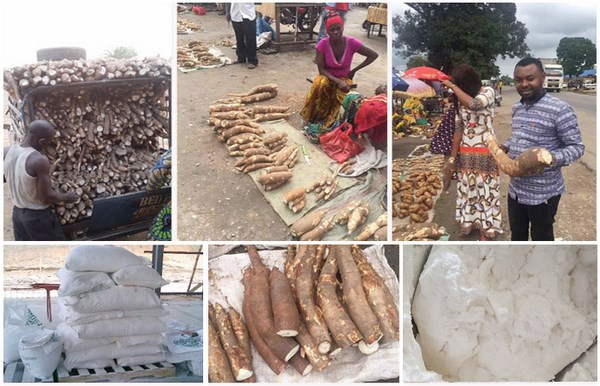Cassava is more than just a staple crop; it is a strategic asset for Nigeria’s economic diversification. The versatility of cassava makes it a valuable raw material for numerous industries, including food and beverages, pharmaceuticals, biofuels, and textiles. However, much of Nigeria’s cassava is consumed in its basic form as a food source, domestically, leaving significant opportunities for industrial processing, value addition, and export untapped

Cassava’s diverse derivatives such as sweeteners and high-quality cassava flour offer cost-effective alternatives to costly imports used in the food, beverage and pharmaceutical industries (cassava-based sweeteners are 25% cheaper). This dynamic not only meets robust domestic demand but also fuels global opportunities..

Nigeria’s cassava sector involves millions of small holder farmers, with women playing a vital role in both cultivation and processing. Current opportunities potentially enable businesses to capture higher margins by transforming raw cassava into value-added derivatives, an approach that drives inclusivity and promotes economic empowerment throughout the entire value chain.

Cassava is a resilient, versatile crop, able to grow in less fertile soils, making it adaptable and economically viable. By-products like peels are reused for
bioenergy and animal feed, while derivatives such as bio-ethanol offer eco-friendly alternatives to fossil fuel.-based bio-ethanol production for use in food, beverages, and industrial products.

Nigeria produces 20% of the world’s cassava, yet only 2% of cassava is processed, compared to global industrial benchmarks of over 30%. The untapped processing market represents a $5-6 billion opportunity.
Several investments have been made in research and development of the cassava sector in Nigeria to improve yield, cultivation practices, and processing technologies.